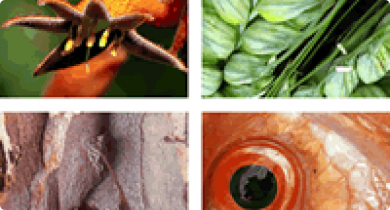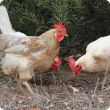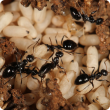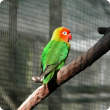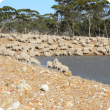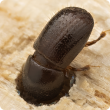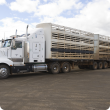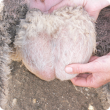Biosecurity & quarantine
The Department of Agriculture and Food, Western Australia (DAFWA) works with primary industries to safeguard our agricultural resources from biological threats and to maintain our export opportunities.
The State’s reputation is underpinned by a comprehensive biosecurity and quarantine system, developed and operated by DAFWA.
DAFWA is involved with:
- creation of surveillance and diagnostic programs
- animal and plant risk assessments
- importing and exporting requirements
- creating mechanisms to respond to incursions
- livestock movement and identification
- development and maintenance of biosecurity and quarantine legislation.
To find out more about what we do to protect agricultural production and export opportunities within the State please search our website.
Filter by search
Filter by topic
- (-) Remove Pests, weeds & diseases filter Pests, weeds & diseases
- (-) Remove Biosecurity filter Biosecurity
- Diseases (160) Apply Diseases filter
- Livestock biosecurity (120) Apply Livestock biosecurity filter
- Livestock health & diseases (113) Apply Livestock health & diseases filter
- Livestock & animals (110) Apply Livestock & animals filter
- Livestock disease surveillance (104) Apply Livestock disease surveillance filter
- Livestock species (80) Apply Livestock species filter
- Plant biosecurity (79) Apply Plant biosecurity filter
- Pests (65) Apply Pests filter
- Crops (65) Apply Crops filter
- Horticulture (58) Apply Horticulture filter
- Livestock management (45) Apply Livestock management filter
- Pest insects (37) Apply Pest insects filter
- Invasive species (36) Apply Invasive species filter
- Sheep (33) Apply Sheep filter
- Emergency animal disease preparedness (33) Apply Emergency animal disease preparedness filter
- Fruit (28) Apply Fruit filter
- Beef cattle (27) Apply Beef cattle filter
- Control methods (24) Apply Control methods filter
- Dairy cattle (21) Apply Dairy cattle filter
- Pest animals (19) Apply Pest animals filter
- Vegetables (19) Apply Vegetables filter
- Weeds (18) Apply Weeds filter
- Fungi (18) Apply Fungi filter
- Chemicals (18) Apply Chemicals filter
- Quarantine (16) Apply Quarantine filter
- Emergency response (15) Apply Emergency response filter
- Management & reproduction (14) Apply Management & reproduction filter
- Poultry & birds (13) Apply Poultry & birds filter
- Declared plants (13) Apply Declared plants filter
- Pigs (11) Apply Pigs filter
- Potatoes (11) Apply Potatoes filter
- Nursery & cutflowers (11) Apply Nursery & cutflowers filter
- Grapes & wine (10) Apply Grapes & wine filter
- Citrus (10) Apply Citrus filter
- Importing to Western Australia (9) Apply Importing to Western Australia filter
- Goats (9) Apply Goats filter
- Horses (8) Apply Horses filter
- Pest mammals (8) Apply Pest mammals filter
- Livestock movement & identification (8) Apply Livestock movement & identification filter
- Veterinary chemicals (7) Apply Veterinary chemicals filter
- Viruses & virus-like (7) Apply Viruses & virus-like filter
- Tomatoes (7) Apply Tomatoes filter
- Table grapes (7) Apply Table grapes filter
- Preventing residues (7) Apply Preventing residues filter
- Feeding & nutrition (7) Apply Feeding & nutrition filter
- Bacteria (6) Apply Bacteria filter
- Agricultural emergency response (6) Apply Agricultural emergency response filter

